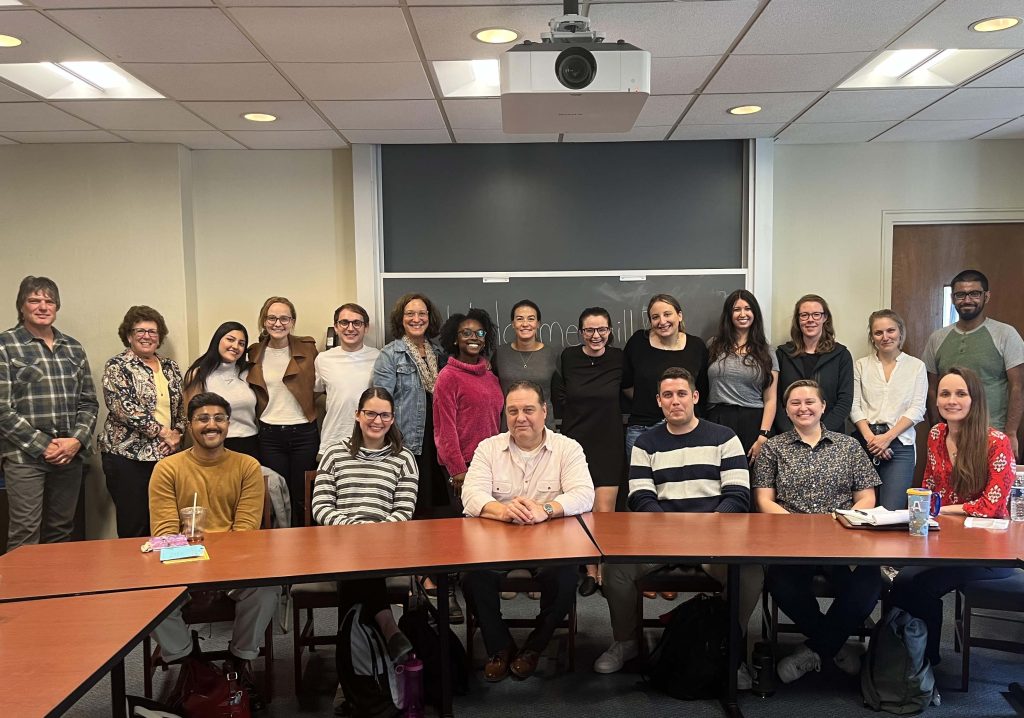Two longtime collaborators, the Boston College Innocence Program (BCIP) and the Committee for Public Counsel Services (CPCS), are once again the recipients of a major US Department of Justice grant. The award totals $500,000 and will enhance their wrongful convictions work of the past seven years.
The Upholding the Rule of Law and Preventing Wrongful Convictions grant will support both programs’ direct representation to indigent clients who are wrongfully convicted in Massachusetts of crimes they did not commit. It will also enable their collaboration with community partners to address the underlying causes of wrongful conviction, including systemic racial bias.
“The Justice Department’s continued grant support is a testament to our Innocence Program’s success in providing essential services and support to clients,” said Interim Dean Diane Ring. “Our partnership with CPCS has led to several high-profile exonerations, provided students with hands-on experience in advancing justice, and fulfilled Boston College’s mission to provide a voice for the voiceless.”
This is the third DOJ grant awarded to BCIP and CPCS, whose unique collaboration was launched with a 2015 grant and bolstered with a $354,000 grant in 2020. The partnership between New England’s only in-house law school Innocence Clinic and the Massachusetts indigent public defense agency has vacated the wrongful convictions of 24 people, 18 of whom have been fully exonerated.
The programs have also been instrumental in systemic reforms in the areas of racial bias, eyewitness misidentification, flawed forensics, incentivized false testimony, exoneree support, and the creation of conviction integrity programs.
In Massachusetts, as in most states and the federal system, there is no constitutional or statutory right to postconviction counsel, even for prisoners who are factually innocent. The 2022 grant aims to mitigate that gap in the law by increasing staff capacity at both programs to investigate and litigate postconviction innocence cases. The grant also replenishes a fund for expert and investigative services needed to prove factual innocence.
“This award provides critically needed funding to expand our collaboration with the BC Innocence Program and enable our programs to reach and support litigation on behalf of many more wrongfully convicted men and women across Massachusetts,” said CPCS Innocence Program Director Lisa Kavanaugh.
Professor Sharon Beckman, who directs the BC Innocence Program, said: “We are grateful to the Department of Justice for this grant, and to the Committee for Public Counsel Services for the opportunity to engage Boston College Law students and undergraduate and graduate students from across the University in this important life-changing work.”
A significant aspect of the 2022 grant is that it will support efforts by BCIP and CPCS to gather data to assist in identifying and addressing racial biases that cause wrongful convictions or impede efforts to remedy them.
“This work is so important,” said Visiting Distinguished Professor Geraldine Hines, an expert on racial justice, “especially to the never-ending task of overcoming wrongful convictions caused by the improper influence of race in criminal trials.”
The 2022 grant will also enable both programs to leverage their expertise by offering specialized trainings to defense attorneys, prosecutors, and judges regarding the postconviction process and best practices for identifying and remedying wrongful convictions. Building on both programs’ role as collaborators in the Massachusetts Conviction Integrity Working Groups 2021 publication “Conviction Integrity Programs: A Guide to Best Practices for Prosecutorial Offices,” this effort will include education about the important role of conviction integrity units in identifying and remedying wrongful convictions.


